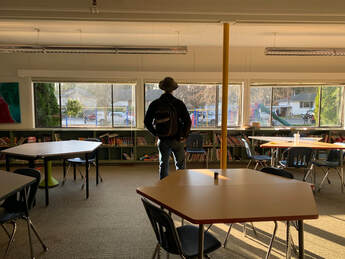
But good schools are not fast food franchises, and good educators are not chefs. Schools must be studios of creative learning experiences and the staff must be artists in residence. Artists who have a vision of the future for their students and seek to create the means to have them realize it.
Some do it intuitively but the best do it deliberately. They are the “backcasters” in our midst.
What is a backcaster? Well, to begin with, you might think that it is just the opposite of a forecaster, in other words, a predictor of future events. But that would mean that teachers are only good at predicting past events, as in “I taught it, but they didn’t learn it” (Assuredly not a really useful skill!)
In actual fact, “backcasting” takes “forecasting” to a new level. Where forecasting looks at current trends and tries to analyze what they mean for future conditions (like a weather forecast); backcasting looks at a possible future and then works backwards to determine what factors or interventions will be necessary to construct the future that we desire.
Environmentalists use both methods, constructing models of future degradation based upon business as usual and contrasting that with the preferred future and determining the actions that society needs to take to get there.
In a “macro” educational environment, that is called “backwards curriculum design”. You identify desired outcomes and then work backwards to create assessments, develop resources, and determine teaching strategies that will get your students where you want them to go.
At Kenneth Gordon we also engage in “micro” curriculum design through developing individual education plans (IEPs) for each of our students. We “backcast” from where we want them to be, through reverse steps, back to where they are now. Along the way we establish benchmarks and assessment criteria to measure progress (and help with mid-course corrections) and then when it is all in place, we reverse direction and begin to move forward to our preferred future for each child.
Not surprisingly, this is more complex and challenging than simply implementing a packaged programme or slavishly following one single methodology for teaching and learning. It requires continuous training, reflection, and reinvention as we continuously adjust to an ever-changing learning pathway.
When we accept students into our school, we don’t compartmentalize them according to a “diagnosis” or label. We backcast. We know our desired outcomes, we understand the child’s current strengths and challenges and we decide whether or not we can build an individualized programme that can get her or him from where they are, to where they need to be. If the answer is yes, then we welcome them with open arms, regardless of what label someone else might affix to them.
Ironically then, an effective backcast is the most effective and proactive forecast of student growth and achievement. So next time you see us looking over our shoulders – you know where we are coming from – and where we are going!


 RSS Feed
RSS Feed
